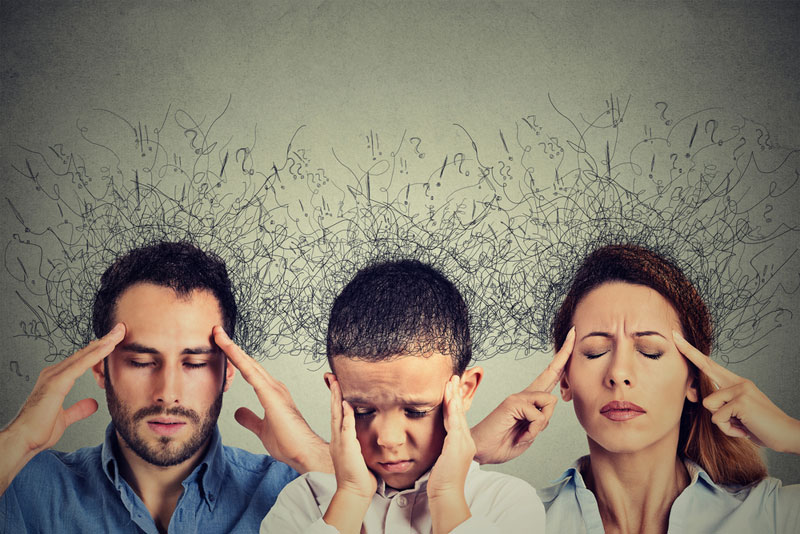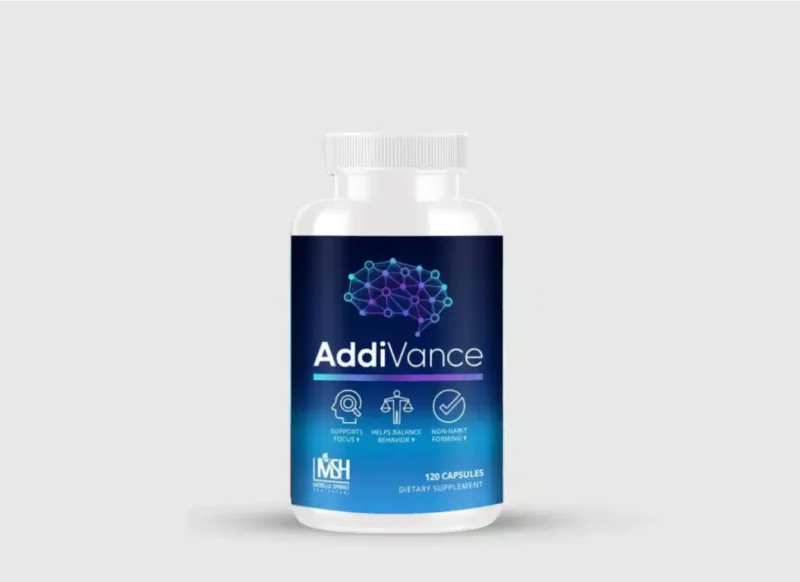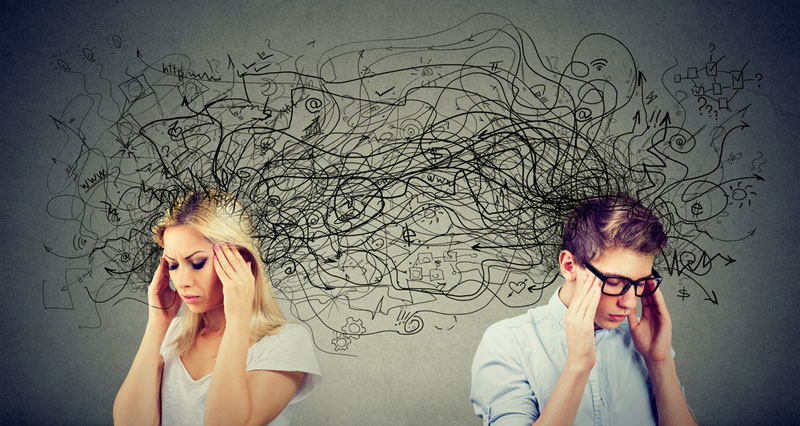Living with Attention Deficit Hyperactivity Disorder can be challenging, as it goes beyond the typical symptoms of attention issues or hyperactivity. In addition to these challenges, individuals with ADHD or BPD may experience significant difficulties in interpersonal relationships.
These difficulties can manifest in various ways, such as having trouble communicating effectively with others, struggling to read social cues, and difficulty maintaining friendships or romantic relationships. It can also lead to impulsive behavior, which can damage relationships or cause others to feel hurt or misunderstood.
In some cases, ADHD can also cause individuals to feel isolated or disconnected from others, worsening the impact on their relationships. Understanding the effects of ADHD on interpersonal relationships is crucial to developing strategies to improve communication, build stronger relationships, and enhance overall quality of life.
Symptoms Of ADHD
- Inattention: Difficulty focusing, forgetfulness, easily distracted, trouble organizing tasks.
- Hyperactivity: Fidgeting, restlessness, an inability to stay still, constant movement.
- Impulsivity: Interrupting others, impatience, acting without thinking, risky behaviors.
Medella Springs Supplements To Improve Behavior And Memory
LuciPlex is a unique supplement offering a comprehensive blend of vitamins, minerals, amino acids, and naturally derived ingredients designed to enhance cognitive functions. It is particularly effective in improving memory and increasing focus and clarity, making it an ideal choice for managing symptoms of ADHD. Additionally, LuciPlex has the added benefit of slowing down neurodegeneration, which can result from aging or certain lifestyle factors.
On the other hand, Medella Springs offers Addivance, a naturally derived supplement notable for its absence of reported side effects in clinical trials, making it a safe option for long-term use. It is specifically formulated to support mental focus and help balance behavior, addressing key challenges faced by individuals with ADHD. What sets Addivance apart is its non-habit-forming nature, ensuring that it can be used consistently without the risk of dependency.
Impact Of ADHD On Relationships
Individuals with ADHD face various challenges in their relationships, including:
- Communication Difficulties: Individuals with ADHD may struggle with active listening and maintaining focus during conversations. It can lead to misunderstandings and feeling ignored or undervalued by their partners or friends.
- Impulsivity and Emotional Regulation: The impulsivity associated with men with ADHD can result in abrupt or unpredictable responses, which can be challenging in relationships. Emotional regulation issues may lead to sudden outbursts or mood swings, affecting the stability of interactions.
- Forgetfulness and Disorganization: ADHD often comes with forgetfulness and disorganization, leading to missed appointments, forgotten anniversaries, or neglected responsibilities. These oversights can be misinterpreted as carelessness or lack of interest in a relationship.
- Challenges in Intimate Relationships: In relationships and marriages, the social difficulties associated with ADHD can strain partnerships, leading to frustration and the potential breakdown of these relationships.
Impact Of ADHD On Social Interaction
Individuals with ADHD may experience difficulties with social interaction, which can impact their ability to form and maintain relationships, communicate effectively, and navigate social situations. Here is the overall impact of ADHD on social interaction.
- Prevalence of Social Difficulties in ADHD: A significant number of children and adults with ADHD struggle with social interactions. Statistics indicate that a large percentage of children with ADHD have difficulty forming peer relationships.
- Increased Risk of Loneliness: There is a higher likelihood of chronic loneliness in individuals with intrusive ADHD thoughts compared to the general population.
- Impact of ADHD on Key Social Skills: Essential skills for social interaction, such as attentiveness, responsibility, and impulse control, are often compromised in individuals with ADHD.
- Invisibility of ADHD and Misinterpretation of Behaviors: Due to ADHD being a less apparent disability, behaviors stemming from ADHD symptoms are frequently misattributed to negative personality traits.
- Consequences of Misunderstood Behaviors: Individuals with ADHD often face social rejection due to misconceptions about their behavior, leading to emotional distress, negative impact on gut health, and reduced self-esteem.
Strategies For Managing ADHD
Managing Attention Deficit Hyperactivity Disorder (ADHD) in Relationships is possible through certain strategies.
Open Communication
Individuals with high-functioning ADHD need to communicate openly about their condition with their partners, friends, and family members. Sharing information about how ADHD affects them can lead to greater understanding and empathy.
Setting Realistic Expectations
Both parties in the relationship should set realistic expectations about each other’s capabilities and limitations. This helps build a supportive environment where each individual’s needs are acknowledged.
Creating Systems and Routines
Developing routines and systems can help manage forgetfulness and disorganization. Shared calendars, reminder systems, organized living spaces, and a morning waking-up routine can reduce stress and misunderstandings.
Seeking Professional Help
Couples therapy or counseling can be beneficial. A therapist who understands ADHD can help navigate its unique challenges in relationships.
Practicing Patience and Understanding
Both partners should practice patience. Learning and understanding about ADHD can help non-ADHD partners empathize with the challenges faced by their loved ones.
Working on Emotional Regulation
For those with ADHD, working on emotional regulation techniques, possibly with a therapist or counselor, can improve communication and reduce conflict in relationships.
Importance of Education and Awareness
Educating individuals with ADHD, their close ones, and friends about the disorder can reduce conflict and misunderstanding.
Development of Social Skills in ADHD
Individuals with ADHD benefit from learning strategies to improve their social skills, along with proper assessment and treatment.
Conclusion
ADHD is not just a personal challenge but a relational one, too. While it can introduce unique difficulties in interpersonal relationships, understanding, open communication, and specific strategies can significantly mitigate these challenges. Both parties in any relationship affected by ADHD need to work together and seek support when needed. With the right approach, individuals with ADHD and their loved ones can build strong, fulfilling relationships.
Frequently Asked Questions
What Treatments Are Available For ADHD?
Treatments include medication, behavioral therapy, lifestyle changes, and counseling.
Can Diet Affect ADHD?
Diet doesn’t cause ADHD, but certain dietary changes can help manage symptoms.
How Is ADHD Diagnosed?
Diagnosis typically involves a comprehensive evaluation, including psychological testing, medical history, and symptom assessment.




